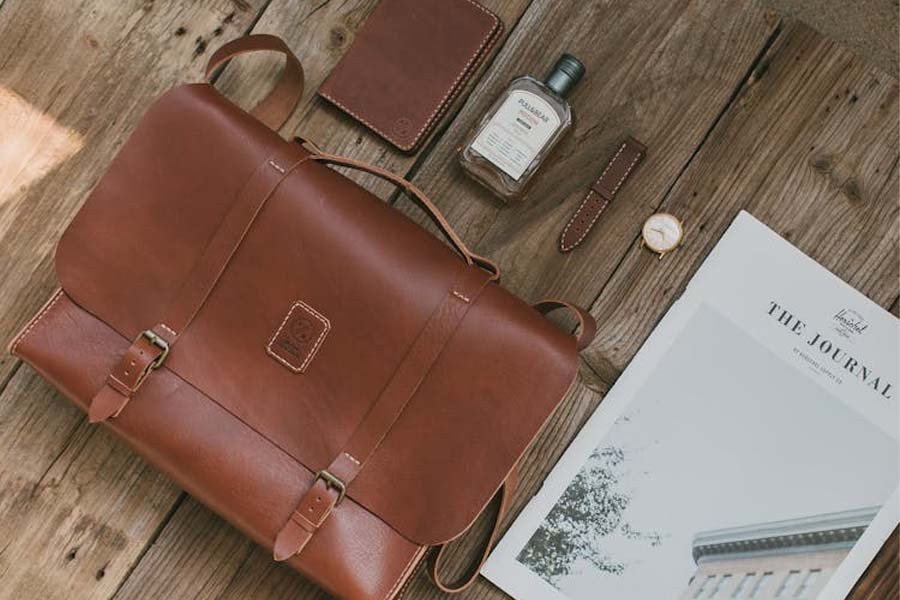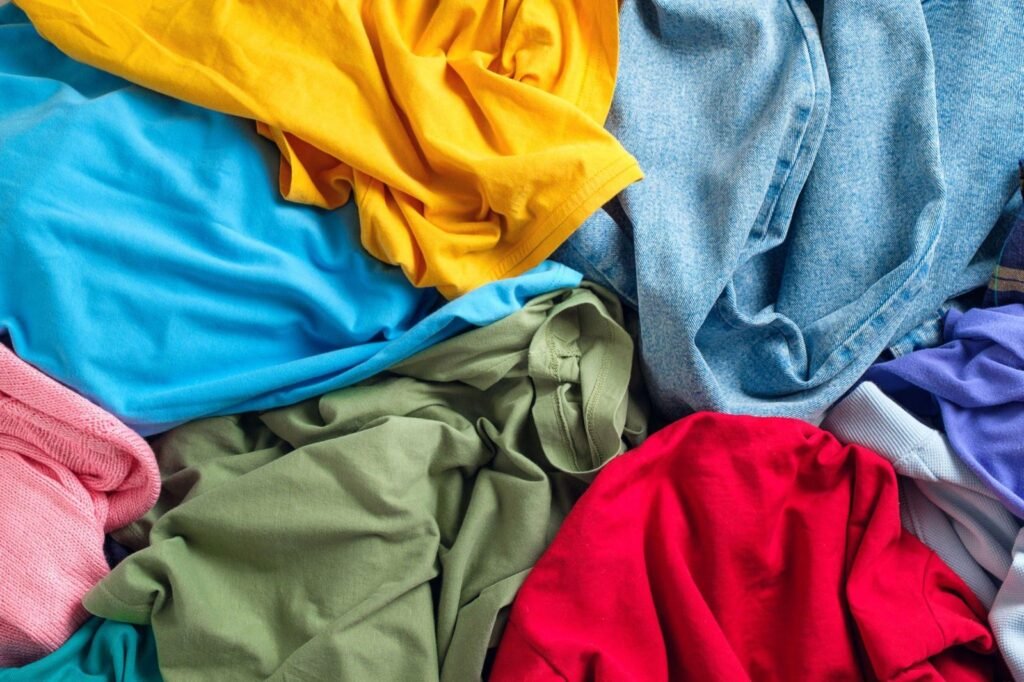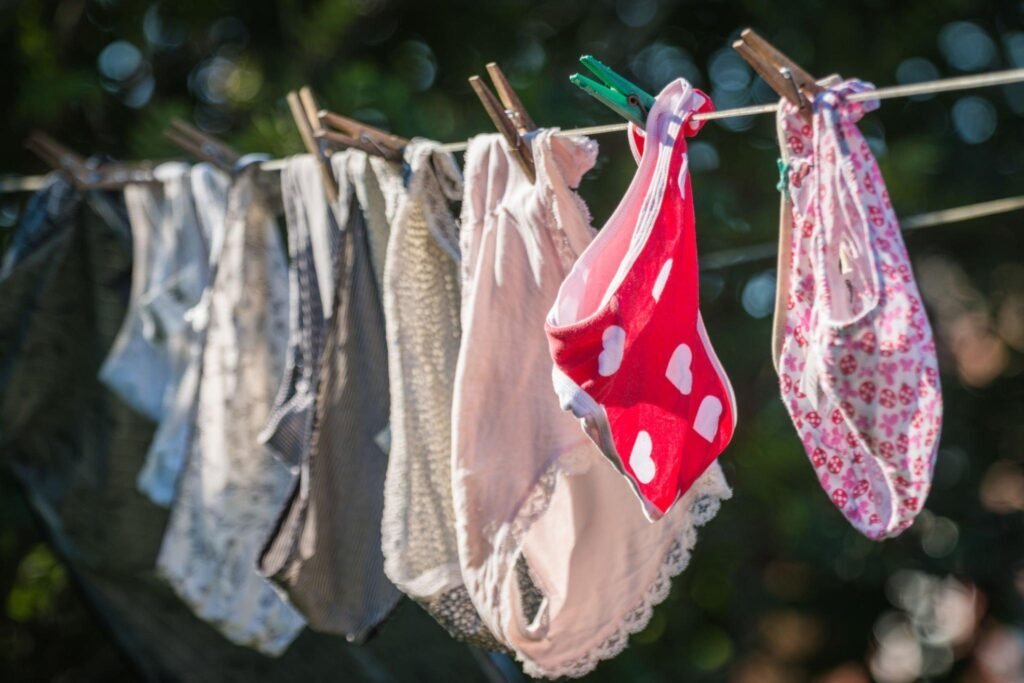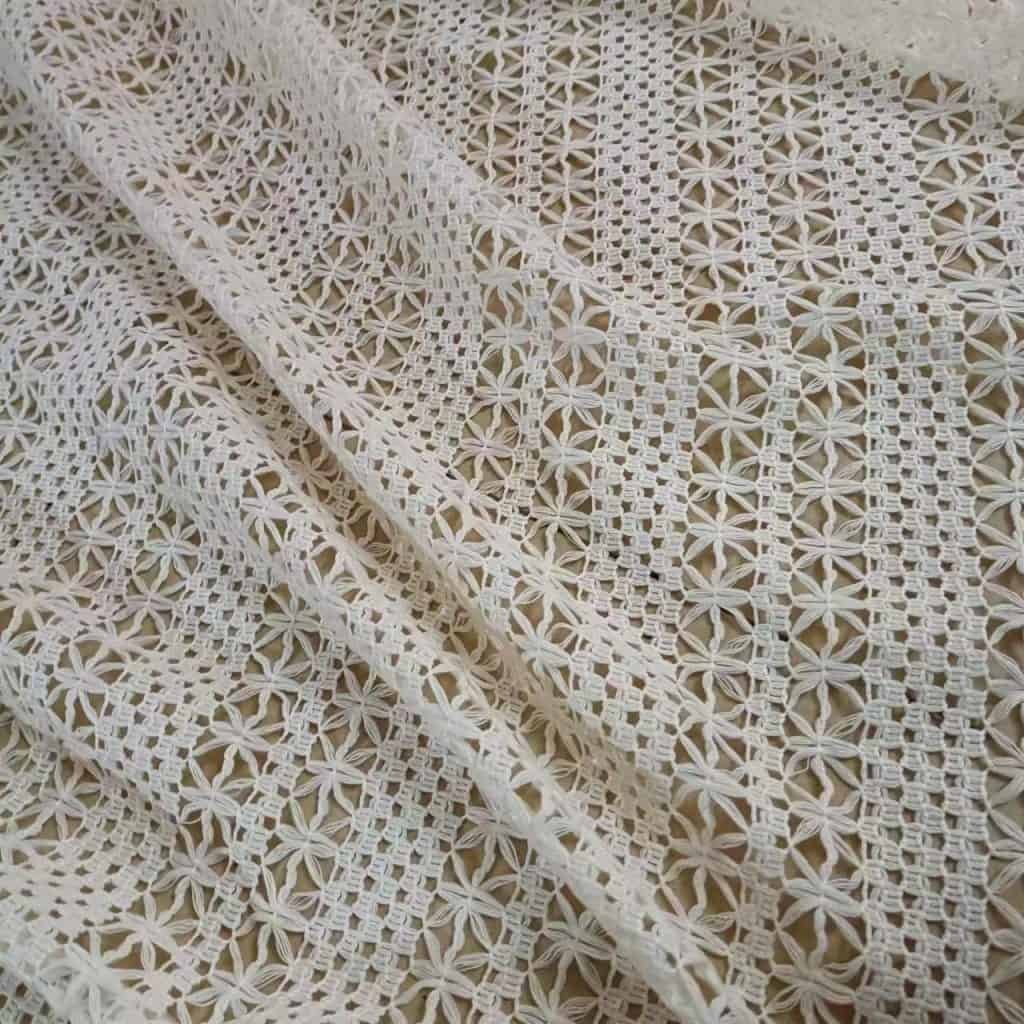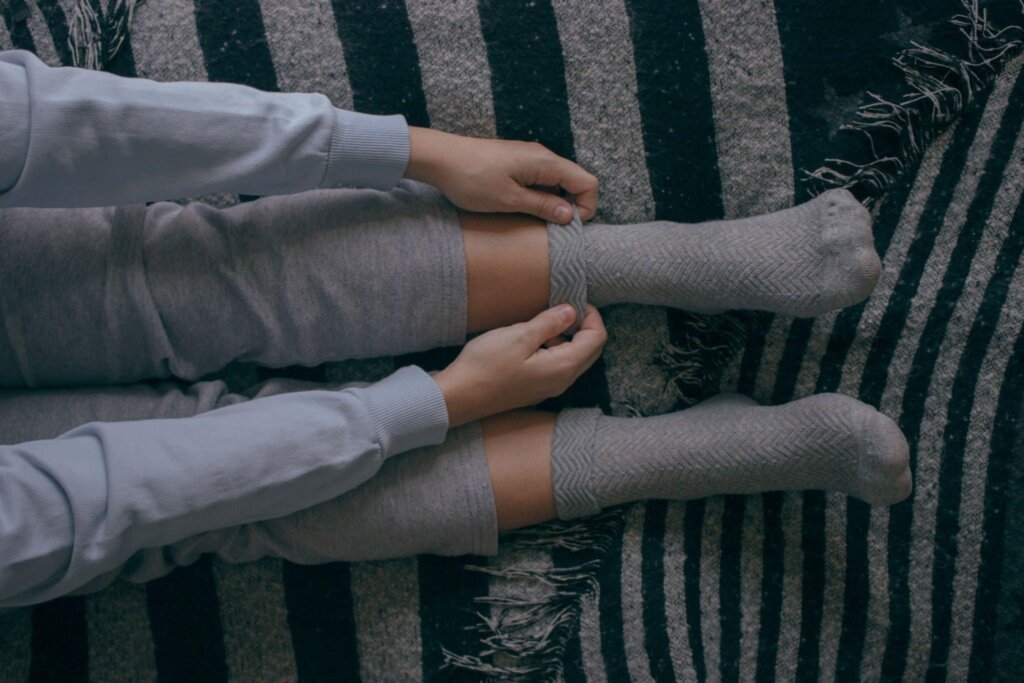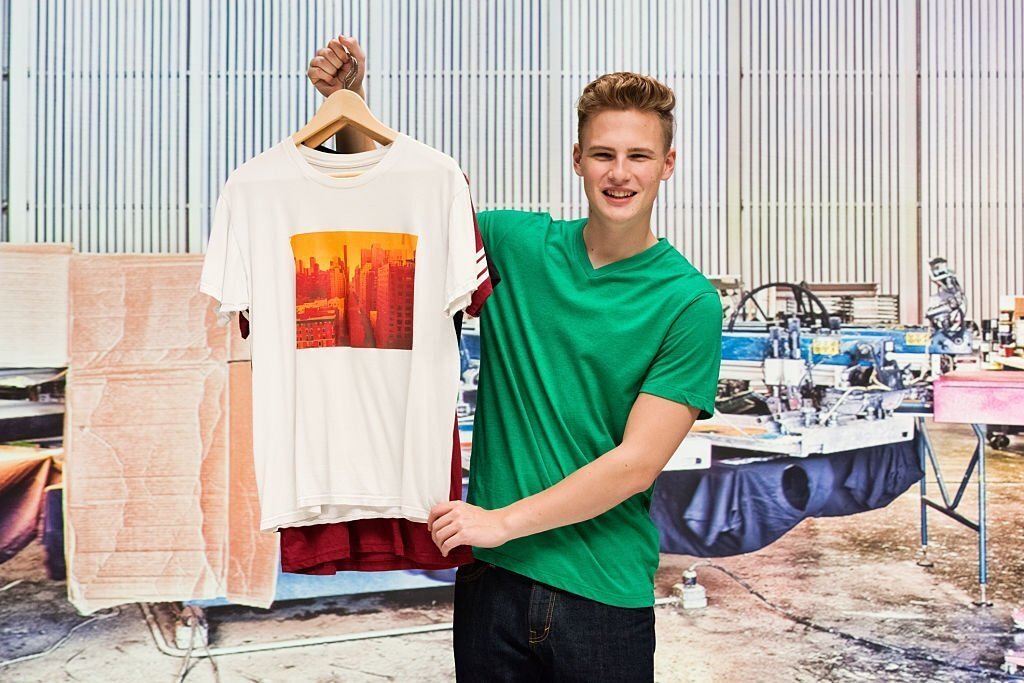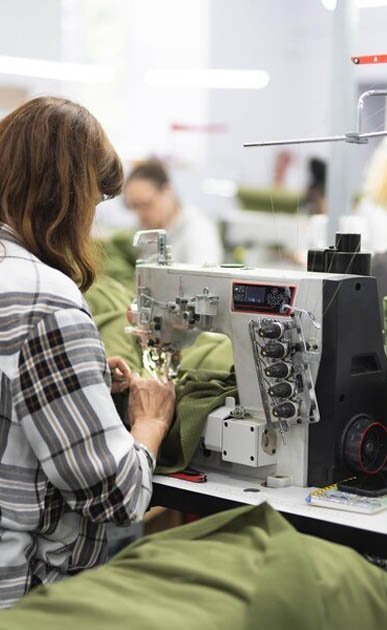
The drill fabric became famous during the industrial revolution when laborers used it as a fabric for workwear. The durability and strength of these fabrics were further proven as it was used as a fabric to make soldiers uniform in World War II.
Drill textiles are strong and can last a long time. Compared to other fabrics, it has a strong bias or diagonal weave. While some people use these fabrics without modifying the material, others bleach or dye it in their preferred color.
During the war, British soldiers dyed their drill material uniforms brown, and they became popularly known as khakis. After the war, it became fashionable as soldiers going back to school used drill cloth shirts.
What Is Drill Fabric?
Drill fabric is a heavy-duty cotton fabric that is tightly woven and has a diagonal pattern on its surface. Usually made from 100% cotton, combed to remove impurities, and pre-shrunk to prevent shrinkage during washing.
The fabric is also usually woven in a twill weave, giving it a diagonal pattern and making it resistant to abrasion. The twill weave of the drill material makes it tough and long-lasting.
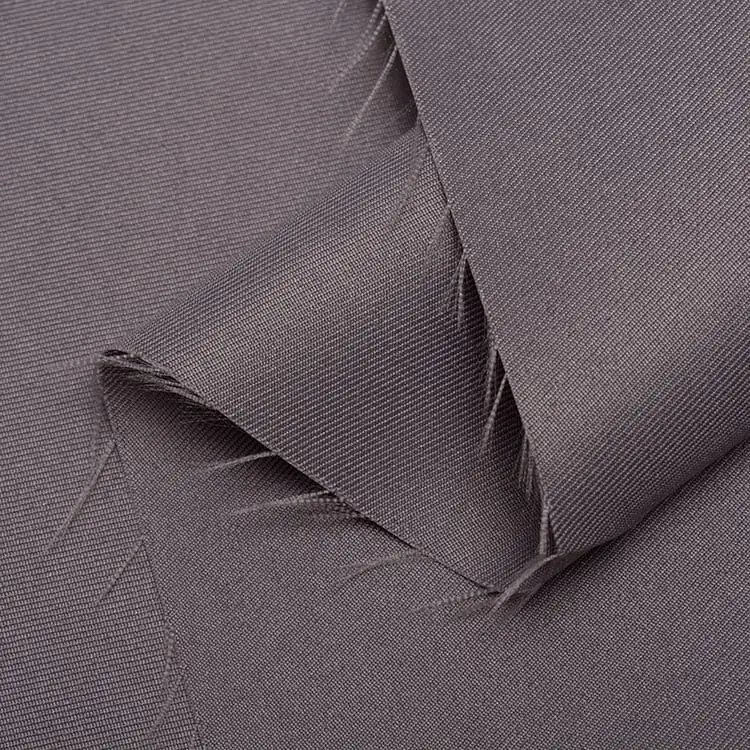
Characteristics of Drill Fabric
Drill fabric is known for its strength, durability, and resistance to wear and tear.
It is also moisture-wicking, which makes it comfortable to wear in a range of environments. The fabric is typically heavy-duty and tightly woven.
Here’s a run-down of what this fabric feels like:
- Naturally breathable,
- With its moisture content, it is non-static,
- Drips less as it absorbs 65% of its weight when wet.
- Biodegradable and recyclable,
- You can boil and bleach it
- It feels soft, dries slowly, and is easy to drape.
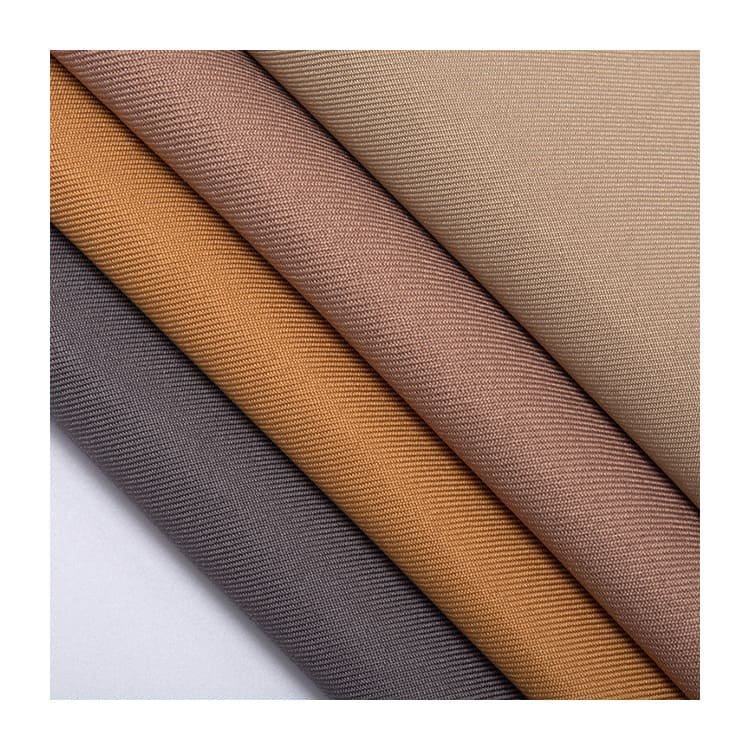
Types of Drill Fabrics
There are different types of drill fabric to choose from. Here’s a list of several types of drill textiles for your next project.
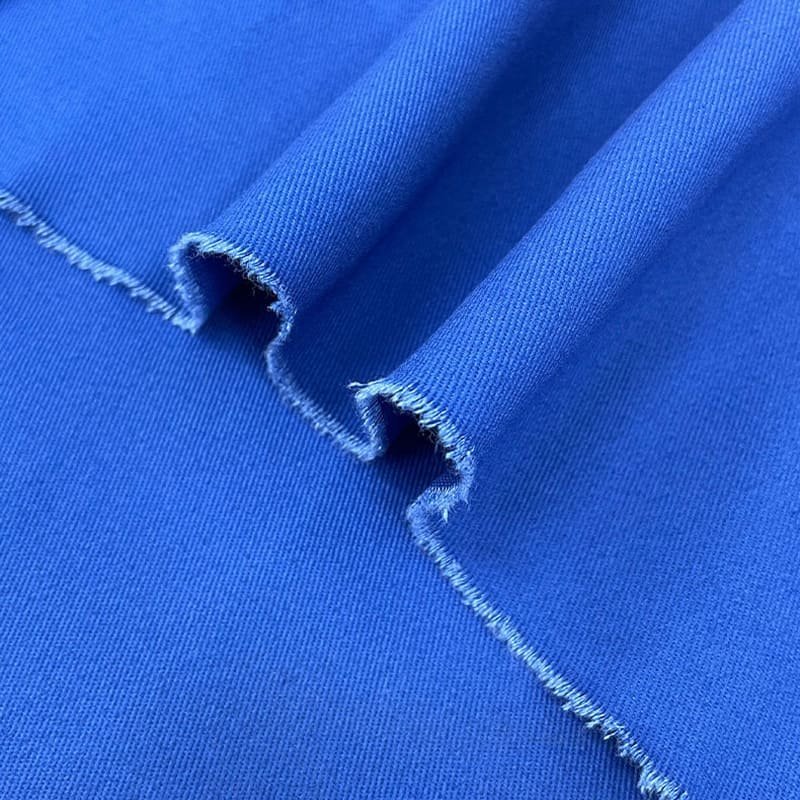
1. Cotton Drill Fabrics
It is the most common type of drill fabric. The cotton drill textile is made of 100% cotton. It is commonly used for workwear, uniforms, and outdoor gear.
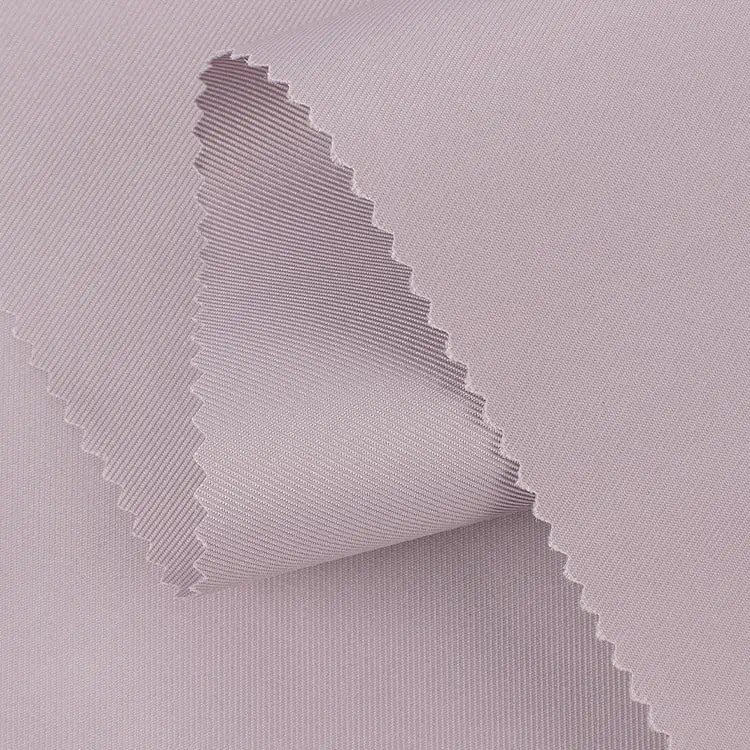
2. Polyester Drill Fabrics
This type of drill fabric is made from a blend of polyester and cotton. It is typically more durable and resistant to wear and tear than cotton drill textile.
It is often used in upholstery and other applications where strength is a key consideration.
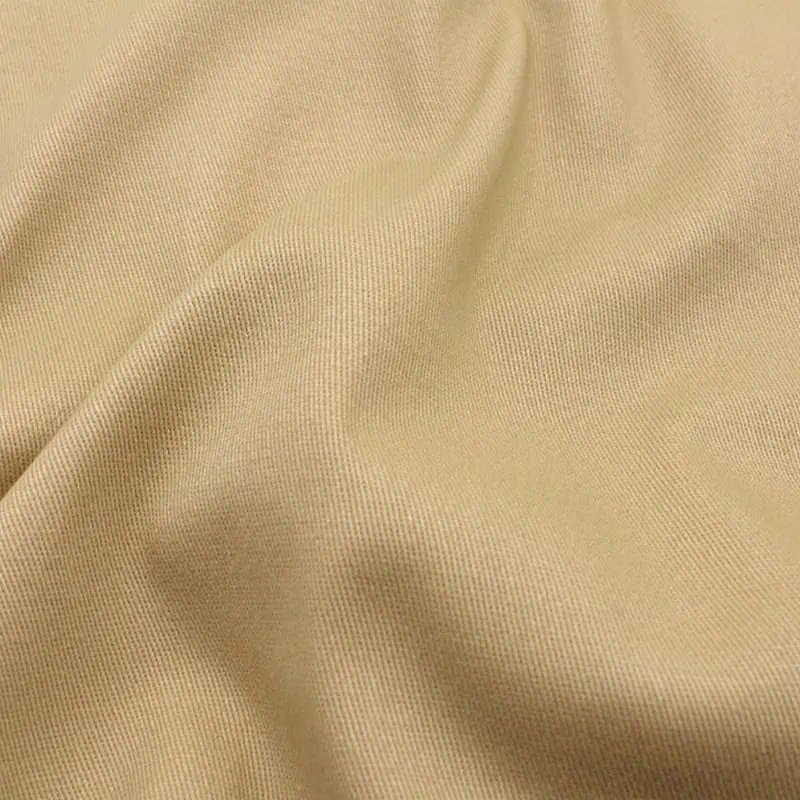
3. Stretch Drill Fabrics
This one is made from a blend of cotton and lycra. It is highly durable and has some stretch, which makes it ideal for applications that need some flexibility and comfort. It is commonly used for trousers, womenswear, and menswear.
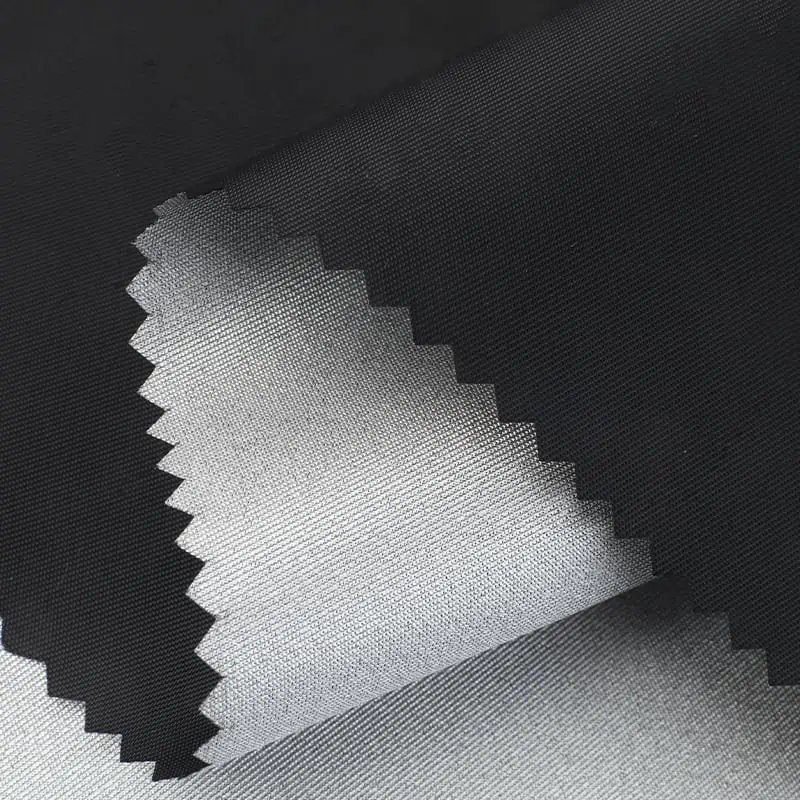
4. Nylon Drill Fabrics
Primarily made from nylon, it is highly durable and resistant to wear and tear. It is commonly used for bags and upholstery.
What Is Cotton Drill Fabric Used For?
There’s just so much you can do with these fabrics. Cotton drill textiles are used for a range of applications, including:
Workwear
Drill cloth is commonly used for workwear due to its strength and durability. It is commonly used for uniforms, coveralls, and other types of work clothing, such as:
- Shirts
- Safari jackets
- Military uniforms
- Chef coats
Upholstery
It is commonly used for furniture covers, cushion covers, and other types of upholstery.
Fashion
Its unique texture and strength make it essential in some fashionable items. The fact that it can be printed in various patterns and colors makes it perfect for fashion wear. It is commonly used for jackets, pants, and other types of clothing.
- Heavier weight dresses
- Bags
- Fabric covered shoes
- Scarves
Drill Fabrics vs. Twill Fabrics
Both drill and twill fabrics are known for their durability and strength. However, drill fabric is generally considered to be more durable than twill fabric, as it has a tighter weave and a heavier weight.
This makes drill fabric ideal for heavy-duty applications, such as military uniforms, workwear, and upholstery. Twill fabric is also durable, but it is lighter in weight and has a softer feel, making it more suitable for clothing and home furnishings.
Advantages Of Drill Fabrics
Drill fabric has several advantages. Its characteristics make it ideal for use in a variety of applications. Some of the advantages of this fabric include:
- Strength: Drill textile is known for its strength and durability, making it ideal for use in heavy-duty applications like workwear and upholstery.
- Durability: Because the drill textile uses a twill weaving process, it is extremely durable and can withstand wear and tear over time.
- Versatility: There are several types of drill textiles available, each with its own unique characteristics and uses. It is a great utility fabric available in vibrant colors.
- Comfort: Some types of drill fabric, like stretch drill fabric, contain spandex or other stretch fibers that give it added flexibility and comfort.
Overall, this fabric is a reliable and versatile material that can provide strength, durability, and comfort in various applications.
Disadvantages Of Drill Fabrics
There are also a few potential disadvantages to consider when choosing a drill textile. These include:
- Stiffness: Some types of drill textiles can be stiff and uncomfortable to wear, especially when first purchased.
- Maintenance: While drill material is generally easy to care for, it may require special treatment or cleaning methods depending on the specific type and intended use.
Care Instructions for Drill Fabrics
To ensure that your clothing made in drill material lasts for a long time, it’s important to follow the proper care instructions. Drill material is known for its strength and durability, but it still requires proper care to maintain its quality.
There are several things you can do to care for your drill textile items:
- When washing drill cloth, always use cold water and mild detergent. Avoid using bleach or fabric softeners, as they can damage the fabric.
- It is best to hang-dry your drill material garments or tumble-dry on low heat. High heat can cause the fabric to shrink.
- If you need to iron your drill cloth items, make sure to use a low-heat setting. Using high heat can cause the fabric to melt or become discolored.
It is important to check the label on your drill clothing items for any specific instructions. Some types of drill textiles may require special care, so it’s important to follow these instructions to ensure the best results.
Conclusion
Drill fabric is a heavy-duty cotton fabric that is widely used for a range of applications. It is strong, durable, and resistant to wear and tear. These properties make the drill fabric ideal for workwear, uniforms, and outdoor gear.
Its ability to wick away moisture makes it comfortable to wear in a variety of settings. Drill fabric’s distinctive and adaptable qualities guarantee its continued significance for many years to come.


